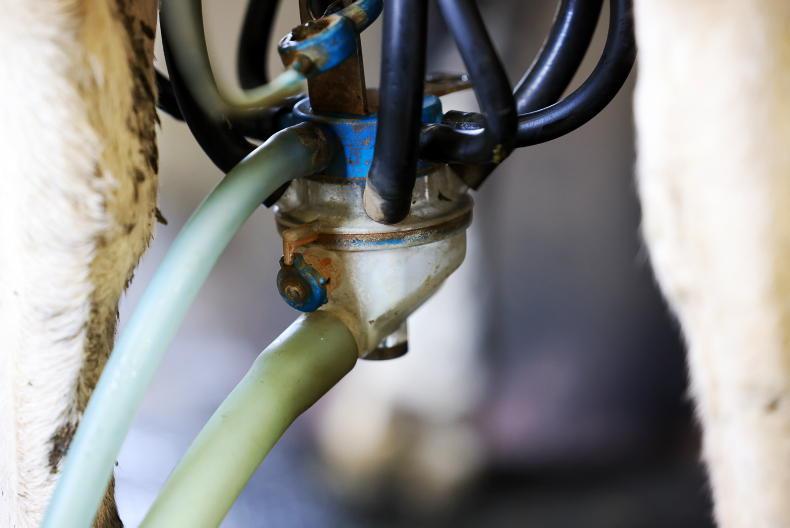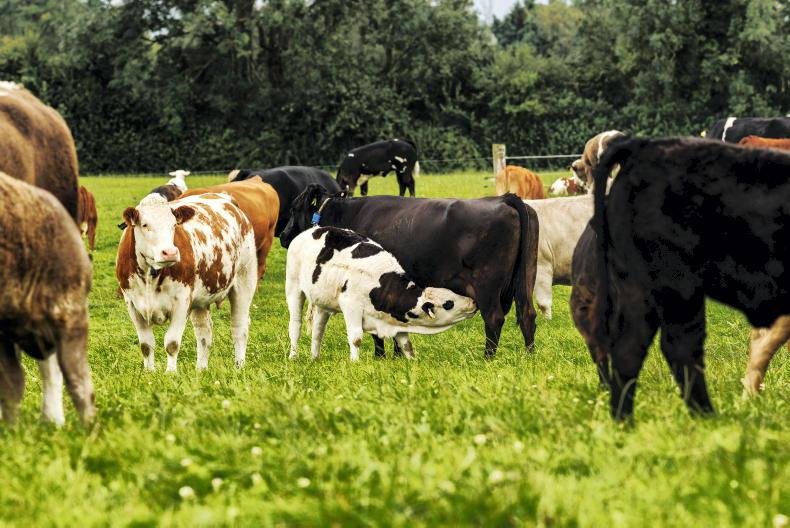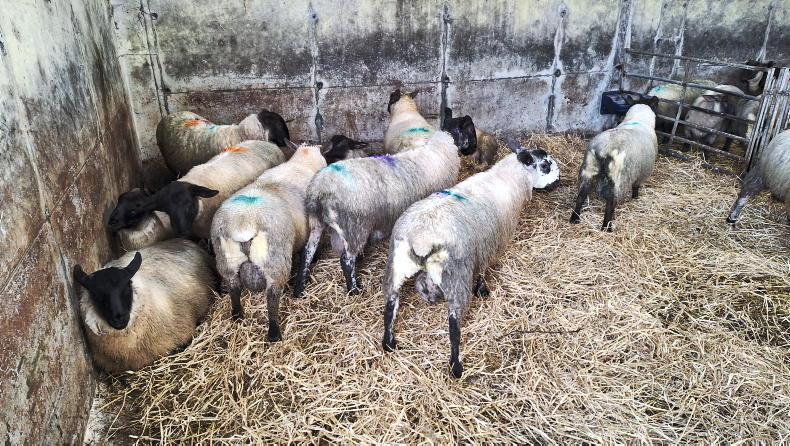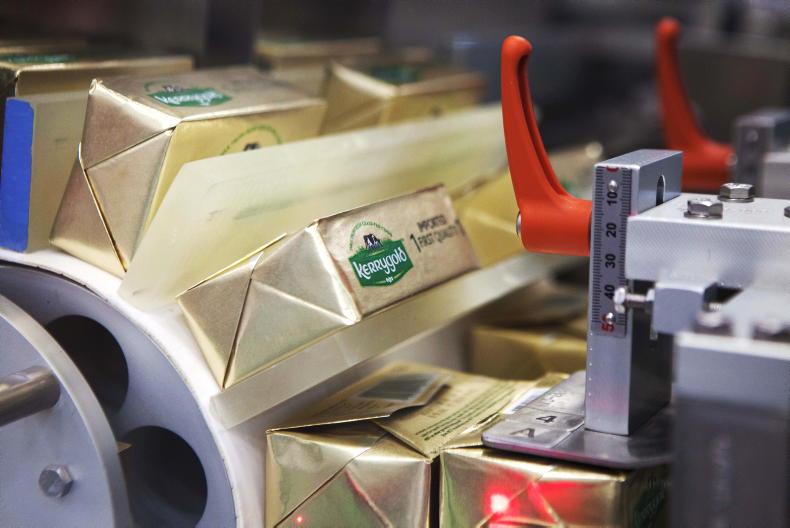Higher-value beef and sheep sector exports will not necessarily translate into increased drystock farmer incomes, according to Minister for Agriculture Charlie McConalogue.
However, the rise in the value of dairy exports has translated into higher incomes for farmers in this sector, the Minister said.
Minister McConalogue responded to an Irish Farmers Journal question on whether last year’s record €16.7bn of agri-food exports - a growth in value of some 22% - will boost farm incomes.
“I think it varies,” he commented at the launch of Bord Bia’s Export Performance and Prospects report 2022/23.
“There is no doubt the last year was challenging and that is something I was conscious of as minister and that is why I introduced some of the supports I did last year to help address these challenges in relation to the Fodder Support Scheme, for example, and also the Tillage [Incentive Scheme].
“When you look at dairying, the increased value has without a doubt translated into significant increases, with a record year in 2022 for dairy farm incomes.
“It has been much more mixed in other sectors and beef and sheep, where there has been increased prices, the costs have been increased as well.
“We will need to wait for what the income figures are, but it won’t necessarily be translating into income because price increases are similar to what cost increases were.”
China's impact unknown
Minister McConalogue stated that is unknown what exact effect beef access to China will have on the factory prices received by farmers.
He told the Irish Farmers Journal that market access is needed to maximise export revenues.
“It’s always impossible to quantify that, but what you have to do is ensure all markets are available and the best value markets,” the Minister said.
“Having access to all of those markets [is] crucial in relation to ensuring we can maximise the price we can get.
“It had increased from zero to €100m in three or four years before it was closed down.”
Transparency needed
Minister McConalogue also spoke of the need to ensure export returns are passed along the chain to farmers.
“The key thing is how we translate that back to family farm income and to make sure we add value to that in terms of bringing more transparency back to the supply chain as well,” the Minister commented.
“Tracing it back from the ultimate market where it is sold to where it is sold off the farm and showing that there is a direct correlation there that farmers are getting the benefit in [that].”
He added that the upcoming establishment of an office of a agri-food regulator would aid in increasing this supply chain transparency.
Read more
Record export figures show importance of farming - farm groups
Agri-food exports soar to record €16.7bn
China can be the real deal for Irish beef exports
The only certainty is uncertainty for food exports in 2023
Why resumption of beef exports to China is good news for beef farmers
Chinese beef market reopening: what it means for Irish beef farmers
Higher-value beef and sheep sector exports will not necessarily translate into increased drystock farmer incomes, according to Minister for Agriculture Charlie McConalogue.
However, the rise in the value of dairy exports has translated into higher incomes for farmers in this sector, the Minister said.
Minister McConalogue responded to an Irish Farmers Journal question on whether last year’s record €16.7bn of agri-food exports - a growth in value of some 22% - will boost farm incomes.
“I think it varies,” he commented at the launch of Bord Bia’s Export Performance and Prospects report 2022/23.
“There is no doubt the last year was challenging and that is something I was conscious of as minister and that is why I introduced some of the supports I did last year to help address these challenges in relation to the Fodder Support Scheme, for example, and also the Tillage [Incentive Scheme].
“When you look at dairying, the increased value has without a doubt translated into significant increases, with a record year in 2022 for dairy farm incomes.
“It has been much more mixed in other sectors and beef and sheep, where there has been increased prices, the costs have been increased as well.
“We will need to wait for what the income figures are, but it won’t necessarily be translating into income because price increases are similar to what cost increases were.”
China's impact unknown
Minister McConalogue stated that is unknown what exact effect beef access to China will have on the factory prices received by farmers.
He told the Irish Farmers Journal that market access is needed to maximise export revenues.
“It’s always impossible to quantify that, but what you have to do is ensure all markets are available and the best value markets,” the Minister said.
“Having access to all of those markets [is] crucial in relation to ensuring we can maximise the price we can get.
“It had increased from zero to €100m in three or four years before it was closed down.”
Transparency needed
Minister McConalogue also spoke of the need to ensure export returns are passed along the chain to farmers.
“The key thing is how we translate that back to family farm income and to make sure we add value to that in terms of bringing more transparency back to the supply chain as well,” the Minister commented.
“Tracing it back from the ultimate market where it is sold to where it is sold off the farm and showing that there is a direct correlation there that farmers are getting the benefit in [that].”
He added that the upcoming establishment of an office of a agri-food regulator would aid in increasing this supply chain transparency.
Read more
Record export figures show importance of farming - farm groups
Agri-food exports soar to record €16.7bn
China can be the real deal for Irish beef exports
The only certainty is uncertainty for food exports in 2023
Why resumption of beef exports to China is good news for beef farmers
Chinese beef market reopening: what it means for Irish beef farmers










SHARING OPTIONS